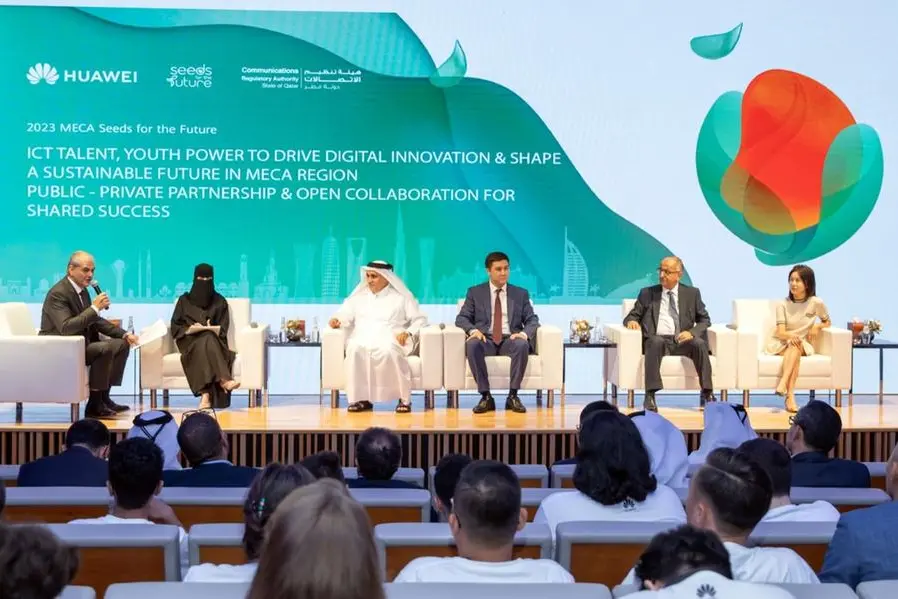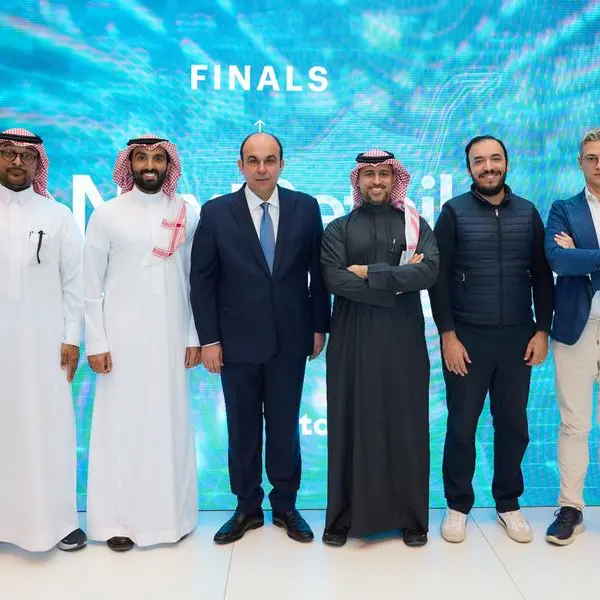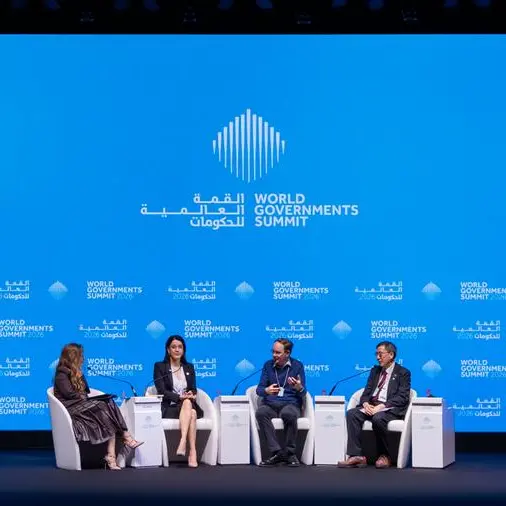PHOTO
Middle East — Huawei's Seeds for the Future Qatar opening ceremony witnessed a landmark panel discussion featuring academics and tech experts from the Middle East and Central Asia with the participation of over 175 students from 15 countries. Under the overarching theme of ICT Talent and Youth Power Driving Digital Innovation and Shaping the Sustainable Future of the MECA Region, During the session, participants delved into the current situation and challenges of digital transformation, emphasizing the crucial need to elevate the skillset of the younger generation. They recognized the significance of aligning youth skills with the rapidly evolving digital landscape.
Prominent figures from academia, the technology sector, research institutions, and training organizations participated in the seminar included, Dr. Ahmed K. Elmagarmid, Executive Director of Qatar Computing and Research Institute, QCRI, Qatar Foundation; Reem Almugbel, Vice Governor of Planning & Business Development at Technical and Vocational Training Corporation, TVTC– KSA; Rustam Karimjonov, Deputy Minister of Digital Technologies of the Republic of Uzbekistan; Dr. Khalid Al-Begain, President of Kuwait College of Science and Technology; and Maya Zhu, Global CSR Lead, Huawei Public Affairs and Communications Department. During the exchange, they all presented valuable insights on key aspects driving the digital transformation journey, highlighting priority areas in training programs and skills development. They emphasized the importance of collaboration, innovation, and enhancing the culture of innovation in the region, as well as the necessity of nurturing local technical talents to pave the way for sustainable digital futures built upon knowledge.
The attendees also stressed the need to enrich university curricula and teaching systems with practical training provided by experienced technology companies, in order to prepare graduates for active participation in driving social and economic progress in their countries, aligning with current national plans, strategies, and visions that focus on maximizing the use of technology. The participants acknowledged the importance of activating further cooperation and partnership frameworks between the public and private sectors in the field of training young technical talents.
Dr. Ahmed K. Elmagarmid, Executive Director of Qatar Computing and Research Institute, QCRI, Qatar Foundation, said: “Our nation’s ICT advancement hinges upon nurturing local talents and embracing digitalization across sectors. We’re committed to developing comprehensive strategies that align with our national vision, fostering an environment where innovation thrives. As a global ICT leader, Huawei has contributed immensely to nurturing Qatar’s ICT talent ecosystem through initiatives like Seeds for the Future.”
Reem Almugbel, Vice Governor of Planning & Business Development at TVTC, KSA, commented: “The collaborative efforts between public and private sectors form the bedrock of sustainable technological progress. Such partnerships catalyze innovation and pave the way for a knowledge-based digital economy.”
Rustam Karimjonov, Deputy Minister of Digital Technologies of the Republic of Uzbekistan, added: “Education curriculums must swiftly adapt to the evolving digital landscape. By partnering with ICT private sector companies, we can ensure that our education system empowers students with the skills required for a tech-driven future.”
Dr. Khalid Al-Begain, President of Kuwait College of Science and Technology, said: "Artificial Intelligence holds immense potential to transform societies. Nurturing ICT talent is pivotal to realizing this potential, and global technology leaders must collaborate with government entities to expedite its progress."
Maya Zhu, Global CSR Lead, Huawei Public Affairs and Communications Department, highlighted: "Our commitment to fostering ICT talent across the Middle East and Central Asia is unwavering. Through initiatives like 'Seeds for the Future,' we aim to bridge the talent gap, aligning with national aspirations and driving sustainable growth."
The seminar served as a platform for interaction with media representatives and students from 15 countries in the Middle East and Central Asia region, who gathered in Doha for a full week of activities and training workshops as part of the 2023 edition of Huawei's global program "Seeds for the Future." The program was initially launched by the company in 2008 and is currently implemented in 139 countries worldwide. Technical talents from the Middle East and Central Asia are recognized as among the most prominent globally.
The program is part of Huawei's corporate social responsibility efforts and reflects their collaboration with government, private, and academic institutions in the region. It aims to contribute to the development of the digital economy and global ecosystem by empowering technical talents. With a growing emphasis on innovation and technological progress, the program provides young individuals with a distinctive platform to exchange ideas and connect with peers worldwide. It offers valuable insights into the information and communications technology (ICT) sector, enabling participants to shape their future and actively engage in the digital society.




















